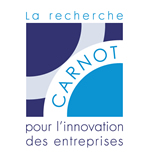Carnot Ingénierie@Lyon

Innovative materials and processes – Intelligent machines...from designing an object to its final use.
In Auvergne-Rhône-Alpes, Ingénierie @ Lyon federates world renowned research teams dedicated to systems engineering and materials sciences, and innovative processes. Our experts focus on innovation and competitiveness in enterprises working in energy, transport and mobility, health and luxury goods.
A major hub of national partnerships in engineering, with more than 1,800 researchers, Ingénierie @ Lyon contributes towards assisting industrial transformations by integrating the constraints of sustainable and environmentally friendly development.
Key figures
Fermer
Key figures
| Permanent staff (full-time equivalent) | 609 |
| PhD Students | 703 |
| Global budget | 110 M€ |
| Partnership incomes with industry | 24 M€ |
Contact
Fermer
Contact
Ingenierie@Lyon Carnot Institute
Centre d'Entreprise et d'Innovation
66 bd Niels Bohr
BP 52132
69603 Villeurbanne Cedex
France
Manuel COLLET
Chairman
Eric ZAMAI
CEO
Industrial demands
+33 (0)7 76 58 11 66
eric.zamai[a]ingenierie-at-lyon.org Email contact
lilian.martinez[a]ingenierie-at-lyon.org Email contact
manuel.collet[a]ingenierie-at-lyon.org
Parent institutions

